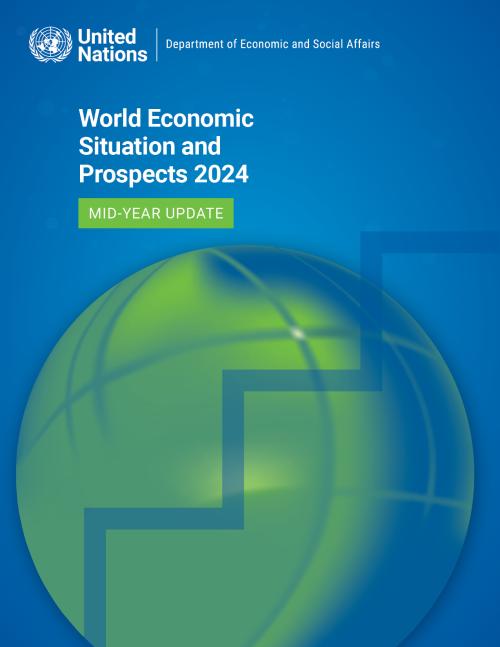
Global economic prospects have improved since January, with major economies avoiding a severe downturn, bringing down inflation without increasing unemployment. However, the outlook is only cautiously optimistic. Higher-for-longer interest rates, debt sustainability challenges, continuing geopolitical tensions and ever-worsening climate risks continue to pose challenges to growth, threatening decades of development gains, especially for least developed countries and small island developing States.
According to the World Economic Situation and Prospects as of mid-2024, the world economy is now projected to grow by 2.7 per cent in 2024 (+0.3 percentage points from the January…

The Handbook on the Least Developed Country Category contains comprehensive and authoritative information on criteria defining the category, graduation procedures, and international support measures for least developed countries (LDCs). This 5th edition reflects recent developments in the LDC category, including refinements to the LDC criteria and the progress of several countries towards graduation from the category. Moreover, it contains updated information on international support measures, including on “smooth transition” provisions for countries graduating from the LDC category. The Handbook, prepared by the Committee for Development Policy (CDP) and the UN Department of Economic…
This report, Thirty years after Cairo: Major trends, progress made and challenges ahead, gives a broad overview of global demographic trends since the International Conference on Population and Development, held in Cairo in 1994, and those foreseeable over the next 30 years. These include the continued yet slowing growth of the global population, its progressive ageing, and the increasing urbanization and scale of international migration.
The report highlights the similarities and gradual convergence of demographic trends across major groups of countries, as well as the diversity of demographic situations among certain…
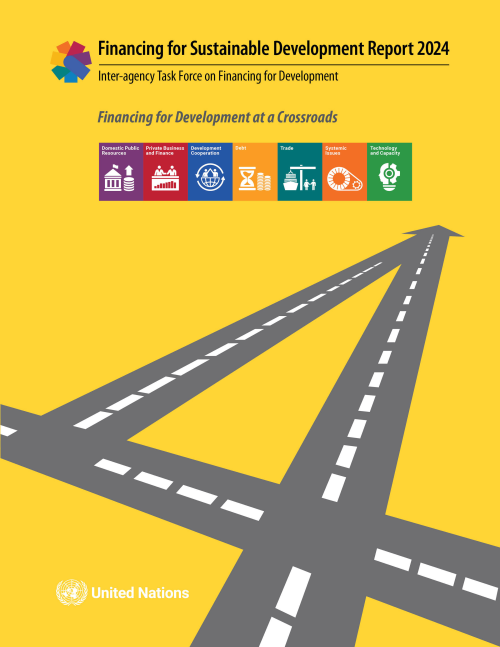
The world is facing a sustainable development crisis. The 2024 Financing for Sustainable Development Report: Financing for Development at a Crossroads finds that financing challenges are at the heart of the crisis and imperil the SDGs and climate action. The window to rescue the SDGs and prevent a climate catastrophe is still open but closing rapidly.
Financing gaps for sustainable development are large and growing – the estimates by international organizations and others are coalescing around $4 trillion additional investment needed annually for developing countries. This represents a more than 50% increase over the pre-pandemic estimates. Meanwhile, the finance divide has not…
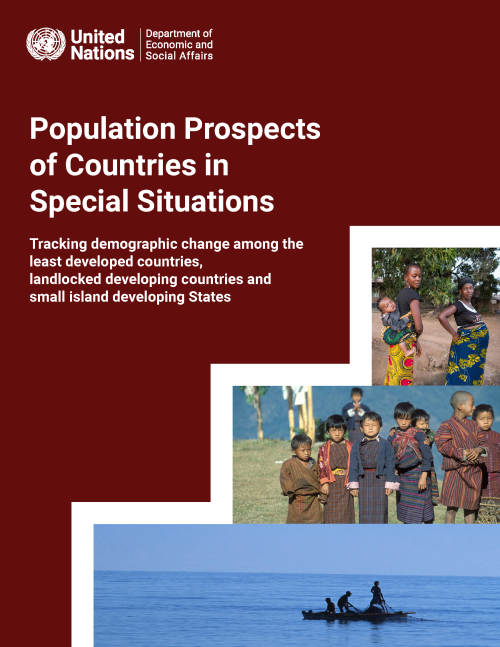
Population Prospects of Countries in Special Situations provides an up-to-date overview of current and future major population trends in the LDCs, LLDCs and SIDS in connection with the opportunities and challenges these trends present for achieving sustainable development. This report highlights levels and trends in population size and distribution, mortality, fertility and international migration, including projections to 2050, for the 110 vulnerable countries or territories, while also discussing the implications of population change for achieving specific Sustainable Development Goals.
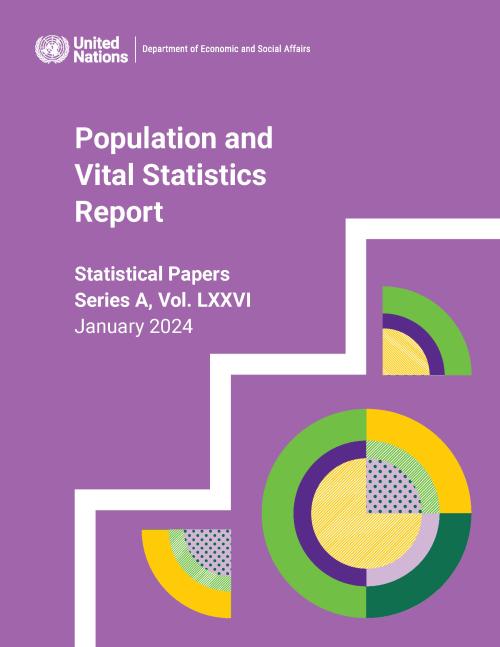
The Population and Vital Statistics Report presents most recent data on population size (total, male and female) from the latest available census of the population, national official population estimates and the number and rate (births, deaths and infant deaths) for the latest available year within the past 15 years. It also presents United Nations estimates of the mid-year population of the world, and its major areas and regions.
This report, in this format, is published once a year, while the electronic version is updated every two weeks at the UNSD website. The report presents data on total, female and male population counts from the most recent population census,…
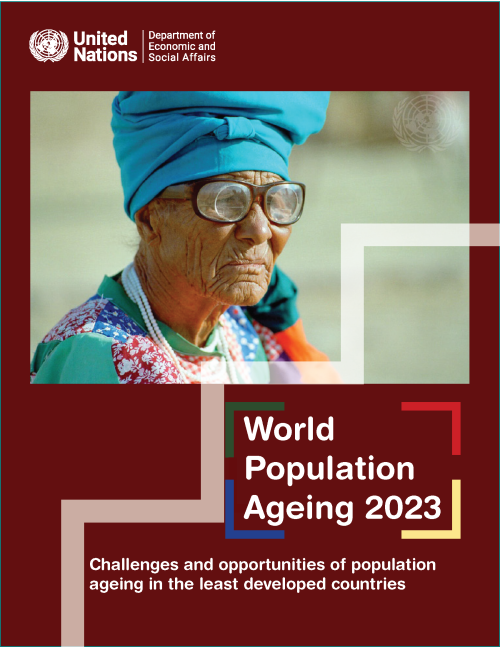
Population ageing is an inevitable outcome of the demographic transition — the historic shift from higher to lower levels of fertility and mortality that yields a period of rapid population increase and, eventually, an older population that is much larger as a share of the total. While more developed countries have completed or are well advanced in this transition, less and least developed countries (LDCs) are predominantly in the early or middle stages, when the older population is still small but starting to grow. Such countries can anticipate a continuing, gradual increase in both the number and the share of older persons, many of whom will require substantial care and support at some…
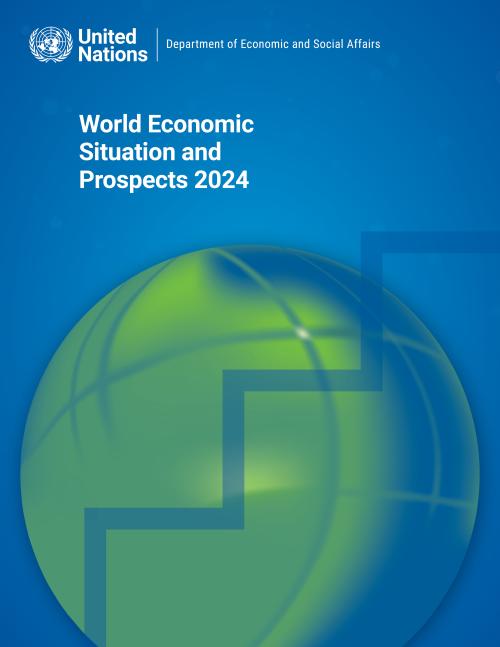
Global economic growth is projected to slow from an estimated 2.7 per cent in 2023 to 2.4 per cent in 2024, trending below the pre-pandemic growth rate of 3.0 per cent, according to the United Nations World Economic Situation and Prospects (WESP) 2024. This latest forecast comes on the heels of global economic performance exceeding expectations in 2023. However, last year’s stronger-than-expected GDP growth masked short-term risks and structural vulnerabilities.
The UN’s flagship economic report presents a sombre economic outlook for the near term. Persistently high interest rates, further escalation of conflicts, sluggish international trade, and increasing climate…
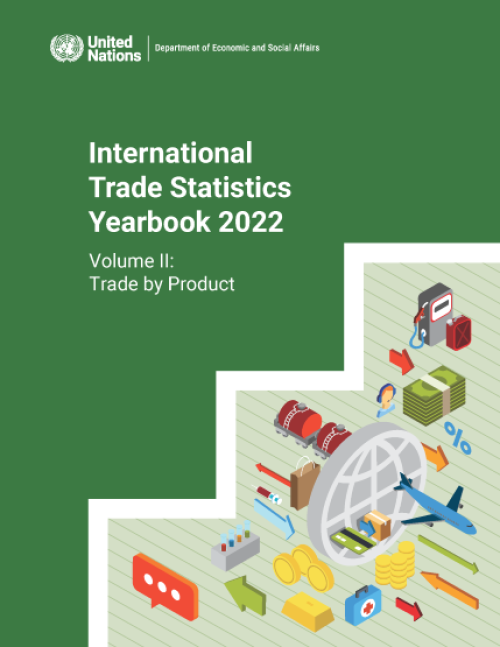
The 2022 International Trade Statistics Yearbook: Volume II - Trade by Product, provides an overview of the latest trends of trade in goods and services showing international trade for 257 individual commodities (3-digit SITC groups) and 12 main Extended Balance of Payments Services (EBOPS) categories, and world/regional trade tables or figures presenting statistics up to the year 2022. The yearbook is also made available online at https://comtradeplus.un.org/Publication/ITSY. For more detailed data, users are requested to go to UN Comtrade (http://comtrade.un.org) which is the source of the information presented in the Yearbook and is continuously updated. The publication is…
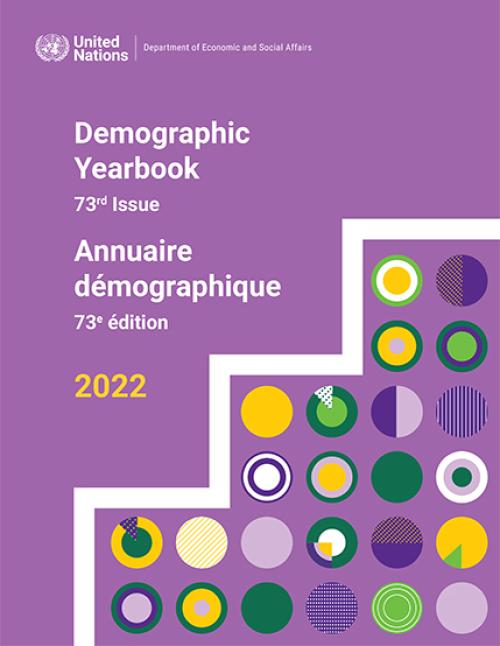
Demographic Yearbook 2022 is the the 73rd issue in a series published since 1948. Through the cooperation with the National Statistical Offices, official demographic statistics are compiled in the Yearbook, as available, for more than 230 countries and areas of the world up to the reference year 2022. This edition of the Yearbook contains chapters on the population size and distribution, the population of capital cities, fertility, foetal mortality, infant and maternal mortality, general mortality, nuptiality and divorce.
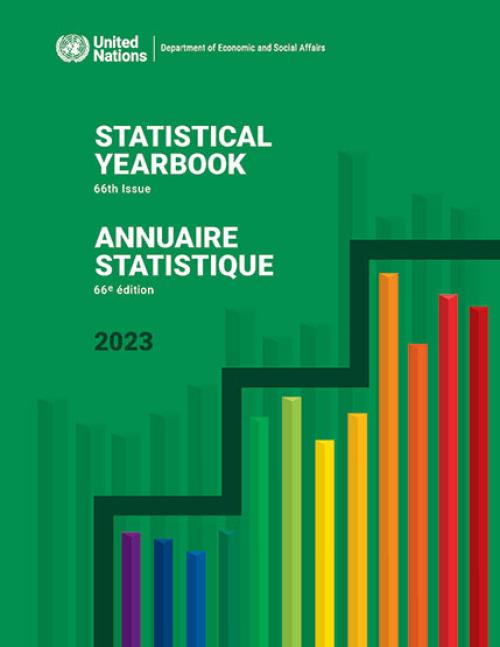
The Statistical Yearbook is an annual compilation of a wide range of international economic, social and environmental statistics on over 200 countries and areas, compiled from sources including UN agencies and other international, national and specialized organizations. The 2023 edition contains data available to the Statistics Division as of 31 July 2023 and presents them in 33 tables on topics such as: communication; crime; development assistance; education; energy; environment; finance; gender; international merchandise trade; international tourism; labor force; national accounts; population and migration; price and production indices; and science and technology. Most tables covering…
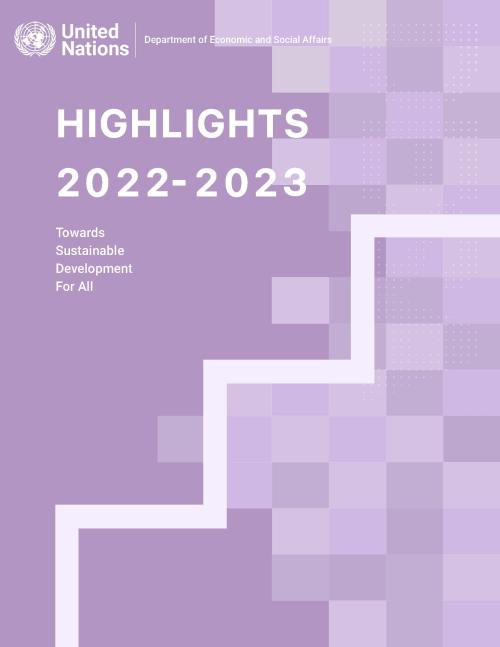
The UN DESA Annual Highlights report is a tool to communicate the contributions of the Department to the realization of internationally agreed development goals and shared social, economic, and environmental aspirations. It showcases the Department’s role in gauging trends, building capacities, and shaping solutions. UN DESA Highlights 2022-2023 covers activities over the period of the 77th Session of the General Assembly (September 2022 – August 2023) and reflects the Department’s response to the set priorities and expressed needs of Member States. Seven (7) thematic chapters showcase how UN DESA put its expertise to the task of supporting Member State efforts to implement the 2030…
 Welcome to the United Nations
Welcome to the United Nations